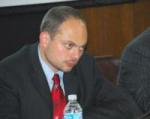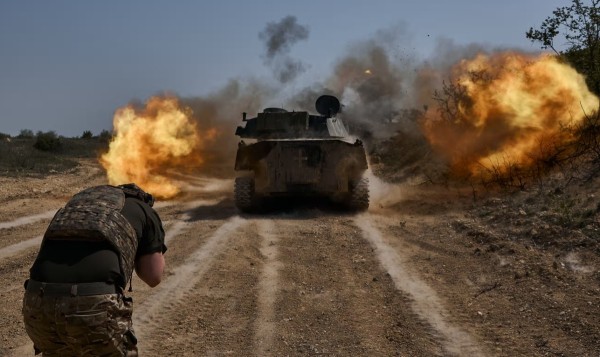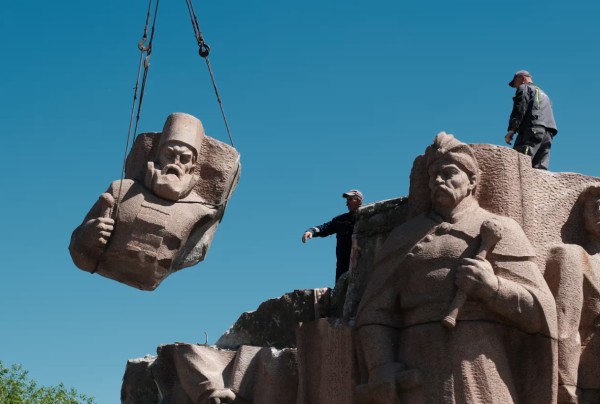
For a government that claims to be popular, Russian President Vladimir Putin’s regime is strikingly afraid of elections. On the national level it has tamed them with a series of administrative obstacles and the removal of opponents. On the regional level it has created a system that essentially allows incumbent governors to hand-pick their challengers. And on the municipal level it has decided to do away with alternate candidates altogether.
Directly elected mayors were once the norm in Russian cities. Today they are fast approaching extinction. As of last week, only eight of Russia’s regional capitals — less than a 10th — still allowed citizens to elect their mayors. As of this week, the number is down to seven.
The latest casualty in the Kremlin’s campaign is Yekaterinburg, Russia’s fourth-largest city of roughly 1.5 million. On Tuesday, the regional legislature abolished direct elections for the city’s mayor, replacing them with a bureaucratic appointment procedure. The discussion in committee took all of 15 minutes; the law was passed in three readings on one day; and no one bothered with providing even a formal justification, except that doing away with elections would save taxpayer money.
No justification was necessary, because the real reason behind the move is well known. In 2013, voters in Yekaterinburg elected Yevgeny Roizman, a charismatic opposition politician, as mayor over the candidate from Putin’s United Russia party. Roizman, a poet and historian, has a reputation of a maverick who often challenges powers-that-be. He has called for the release of political prisoners, criticized the Kremlin’s military involvement in Ukraine and Syria, and supported opposition activist Alexei Navalny’s calls for a boycott of last month’s staged presidential election.
As a political leader who speaks his mind (and an elected mayor of a large city at that), Roizman is a rare bird in present-day Russia. In a country where symbols are important, he spurned the customary portrait of Putin that adorns the office of every Russian bureaucrat, instead putting up a photograph of the poet Joseph Brodsky. “Even his way of speaking infuriates [the authorities],” says Dmitri Golovin, a member of the city council. “He is made from a different dough. They are dull appointees in gray suits. He is alive, he is real.”
On the eve of the law’s passage, thousands gathered on the streets of Yekaterinburg to protest the abolition of elections. It was the city’s largest demonstration in years. “They are afraid of people who rely on popular support, not on the stolen money used to buy loyalty for the Kremlin,” Dmitry Gudkov, an opposition leader from Moscow, said at the rally. “They don’t need honest and intelligent people, they need loyal ones.”
“You elected me, so I am answerable only to you,” Roizman told the crowd. “I don’t have any bosses, so I can say what I think.… Those who are appointed answer to those who appointed them.” Later, speaking in the legislature, the mayor called the decision to abolish elections “an insult to the residents of Yekaterinburg.”
Until September, when his five-year term expires, Roizman will remain the mayor of Yekaterinburg. He has not said what he will do after that, except promising to be as active as ever in resisting the continuing power grab. “Surrender is not in our vocabulary,” he told the Echo of Moscow radio station.
In recent years, the Kremlin has suffered a number of high-profile defeats in mayoral elections across the country. In Yaroslavl, Petrozavodsk and Togliatti, to name a few, opposition challengers prevailed over government-backed candidates. The winners have been arrested, removed from office or, in the best case, allowed to complete their term – but in all those cities, direct mayoral elections were later abolished. For a government that claims to be popular, the Kremlin is indeed remarkably afraid of allowing Russian citizens to choose their leaders. Perhaps it is time more people began to ask why.
https://www.washingtonpost.com...


























